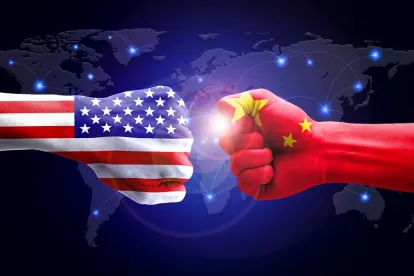The U.S.-China trade deficit, which last year totaled $376 billion, has become the center of an ongoing trade war between the two nations. A series of reciprocal and ratcheting tariffs have escalated these tensions, rapidly shifting which manufacturing sectors are profitable and which are not under the ever-unfolding tariff regime. However, a September Initial Public Offering(IPO) by Chinese electric vehicle startup, NIO has shed light on one tactic that U.S. markets may employ to repatriate money from China in a way that is mutually beneficial to both countries.
Following in the heels of Tesla, which raised $226 million all the way back in 2010, NIO set out to raise $1 billion during its own IPO. After successfully hitting its goal, the stock price momentarily spiked and subsequently returned to earth, currently trading approximately 17% above its initial share price, yielding a $7.56B market cap. Even in its first three full months of sales, NIO is demonstrating the ability to manufacture and sell its cars, reaching a high of 1766 monthly sales in September. Continued sales growth in the coming year will likely reveal NIO as a competitive alternative to Tesla in China, especially considering absence of import tariffs on the locally-manufactured NIO ES8 providing a much lower sales price in China.
But how does the IPO solve the trade deficit? By allowing U.S. shareholders to reap the financial rewards of their stock ownership. Let’s assume, for the sake of argument, that NIO becomes a global EV manufacturer and eventually sells its cars in the U.S. In this case, we can further assume that sales of vehicles designed and built in the U.S. decline by a commensurate amount. In this case, the direct U.S. revenue from declining domestic sales are offset, at least in part, by the return of capital to the shareholders in the form of high share prices or dividends. Certainly, this shift inures to the benefit of only those 54% of Americans invested in the stock market, but when considering the trade deficit as a whole, the repatriation of money through increased shareholder capital is a countervailing force against the outflow of money directly to companies such as NIO.
More regular access to U.S. capital markets by global Chinese-based firms also realigns the trade incentive structure between the United States and China. For example, the United States accused China in the WTO of engaging in illegal steel subsidies, which caused the price of imported steel to drop below that offered by U.S. manufacturers, severely disrupting the U.S. steelmaking economy. Rather than targeting the Chinese steel manufacturers with tariffs to level the playing field after the fact or waiting years to resolve a conflict in the WTO, if the U.S. economy were instead invested in the Chinese companies, then U.S. capital markets would still profit from Chinese state interference with otherwise free markets, much in the way that index funds forego the extreme highs and lows by owning the whole market and realizing long-term steady growth instead.
A level playing field also rests in boardroom control. As a publicly-traded entity on the NYSE, NIO is obligated to adhere to various SEC reporting requirements. Lack of U.S. accountability for Chinese companies has often led to charges of intellectual property (IP) theft, estimated by the U.S. Trade Representative between $225 billion and $600 billioneach year. Having at least some oversight of the companies at the boardroom level as well as U.S. shareholder influence may further enable vigilante shareholder activism to increase corporate transparency and fair dealing. Further, to the extent that at least 10% of a Chinese firm in the U.S. public markets is state-owned (even majority owned as in a traditional U.S.-China joint venture), the SEC reporting requirements under Section 16 of the Exchange Act results in disclosure of major Chinese investments and divestments.
Then there is the question of what China currently does with all the U.S. currency that is inbound daily. As chronicled in the pilot episode of Planet Money, China counters this glut of U.S. currency, which needs to be converted into local currency by regularly collecting this money from local banks across China and exchanging it for U.S. treasury bonds. Providing U.S. stockholders to at least some Chinese businesses may allow this U.S. currency to flow through the Chinese economy back to the publicly-traded Chinese companies and back to the U.S. without running up foreign ownership of U.S. debt.
While NIO represents only an isolated instance of a Chinese company utilizing U.S. capital markets in this way, a concerted effort to court Chinese-backed startups or even well-established manufacturers may result in a decline in the net outflow of money from the U.S. to China. While it may not be a policy lever that the government can pull, it would be beneficial to U.S. institutional investors to start pushing their foreign investments to seek access to U.S. capital markets, capturing more of the global trade in the U.S. exchanges.



 />i
/>i
